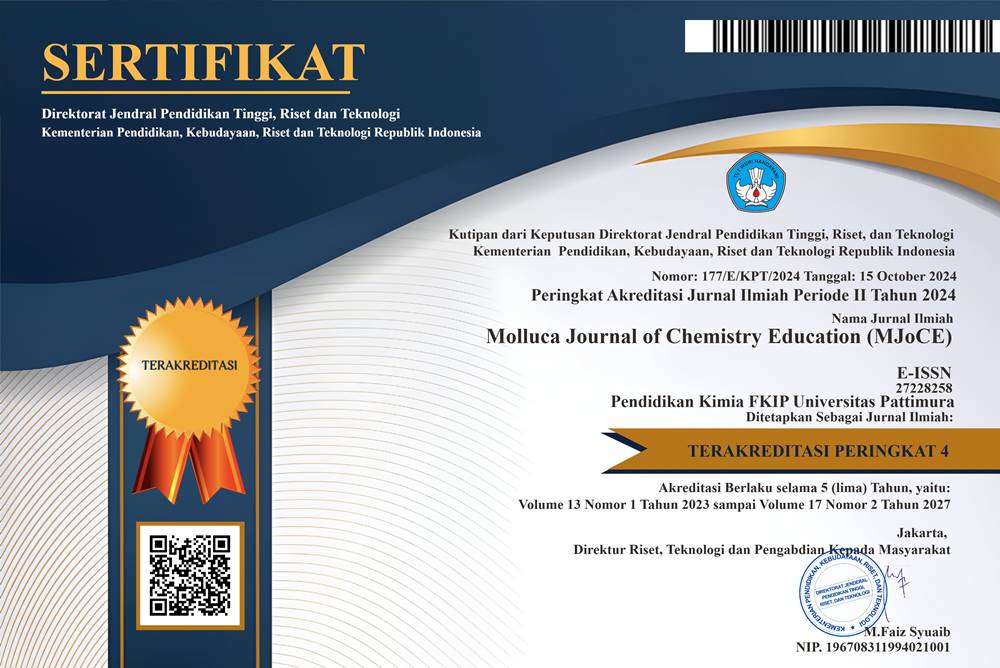PROFILING CHEMISTRY STUDENTS’ SYSTEMS THINKING SKILLS IN RESPONDING TO 21ST-CENTURY CHALLENGES
Abstract
This study analyzes the profile of chemistry students’ systems thinking skills as a key competency for addressing the complex challenges of the 21st century. Systems thinking is essential for understanding the dynamic interrelationships among components within a system in an integrated and holistic manner. A descriptive quantitative approach was employed involving 108 chemistry education students from seven universities across Indonesia, consisting of 58 from rural areas and 50 from urban areas. Data were collected using the Dorani Systems Thinking Skills Test (D-STST), which was adapted to the higher education chemistry context. The results showed that students from urban areas achieved a higher mean score (M = 38.5) than those from rural areas (M = 34.91), indicating differences in systems thinking proficiency based on students’ residential backgrounds. These disparities are likely influenced by learning environments, access to educational resources, and academic experiences. The findings underscore the importance of implementing contextual, inquiry-based, and student-centered learning strategies to strengthen systems thinking skills and better prepare students for the demands of 21st-century education and global challenges.
Downloads
Copyright (c) 2025 Molluca Journal of Chemistry Education (MJoCE)

This work is licensed under a Creative Commons Attribution-NonCommercial-ShareAlike 4.0 International License.




